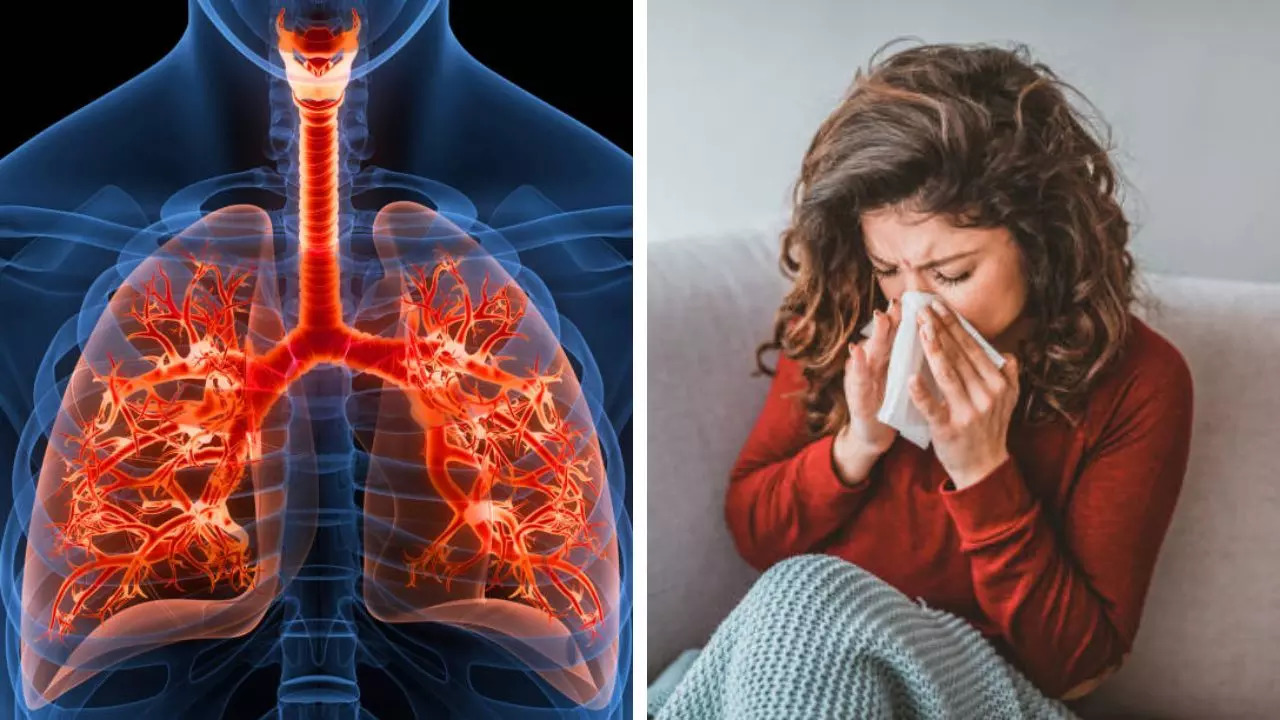Contents
-
news
-
Health
Cases of walking pneumonia, whooping cough are increasing in America; Doctors tell ways to keep yourself safe
According to the CDC, changes in weather have led to an increase in highly contagious infections like whooping cough and walking pneumonia, especially among children in the US. Both conditions are caused by pathogens like bacteria and viruses and can be treated with the help of antibiotics. However, experts call for preventive measures including proper vaccination and wearing masks. Read on to know the details.

Infants are especially vulnerable to whooping cough and pneumonia infections because they may not receive vaccines until they are at least two months old
Federal health officials are warning about a sharp increase in a number of infections this season — including whooping cough and walking pneumonia — especially among school-aged children. According to the Centers for Disease Control and Prevention, there have been about four in five cases of whooping cough this year compared to last year – a highly contagious bacterial infection that affects the respiratory system.
It is also known as pertussis, Whooping cough is highly contagious And it is dangerous because it causes frequent and severe coughs that come and go and last for weeks or months. Pertussis can cause serious, life-threatening illness, especially in infants.
However, walking pneumonia is a less serious form of the lung infection pneumonia, which is often caused by bacteria. mycoplasma pneumoniaAnd is common in children. Doctors say most children with this type of pneumonia do not feel sick enough to stay home, and therefore, it is called “walking” pneumonia.
How do you protect yourself from whooping cough?
According to experts, infants are especially vulnerable to pertussis infection because they cannot receive the pertussis vaccine until they are at least two months old. Most children get pertussis from their parents or adult caregivers.
And so, the best way to protect children is to get the pertussis vaccine. Healthcare providers recommend that all children receive diphtheria-tetanus-pertussis, or DTaP shots – a combination vaccine that also protects them against diphtheria and tetanus. It is completely safe and highly effective.
Doctors say children should receive five injections of DTaP according to the following recommended schedule:
- First dose: 2 months old
- Second dose: 4 months old
- Third dose: 6 months old
- Fourth dose: between 15 and 18 months
- Fifth dose: between 4 to 6 years
Doctors also recommend booster vaccines for adults because they are most likely to be a source of infection in infants.
Ways to prevent walking pneumonia
According to the Cleveland Clinic, walking pneumonia is a mild lung infection usually caused by bacteria, viruses or even mold. It causes symptoms such as sore throat, sneezing, cough, headache, mild chills, and mild fever and is especially common during seasonal changes, especially in fall and winter. The main difference between walking pneumonia and regular pneumonia is that walking pneumonia is milder and does not usually require bed rest or hospitalization.
Since it is a highly contagious condition, doctors recommend taking walking pneumonia very seriously. When someone with the disease coughs, sneezes, talks, sings, or breathes near you, tiny droplets containing the disease enter the air. If you inhale those droplets, the disease spreads.
Although walking pneumonia can be treated with the help of antibiotics, it is better to prevent the condition by:
- Cover your nose and mouth with a tissue when you sneeze or cough
- Wash your hands regularly with soap and clean water for at least 20 seconds
- If you have a respiratory illness like asthma, wear a mask around people who are sick.
- getting an annual flu shot
Get the latest news live on Times Now with breaking news and top headlines from around the world.


